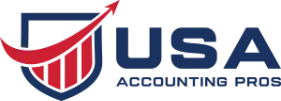Need to keep more money in your business pocket? Improving your cash flow is the key. In this article, you’ll discover practical cash flow hacks that keep more money in your pocket and can make a real difference for your financial health.
Introduction to Cash Flow Management
Cash flow management is the backbone of effective financial planning for any business. It involves carefully tracking and controlling the movement of cash in and out of your company to ensure you always have enough on hand to meet your financial obligations and seize new opportunities. By monitoring accounts receivable, accounts payable, and inventory, businesses can maintain a healthy cash flow and avoid common pitfalls like late payments or cash flow problems that can threaten operations.
A proactive approach to cash flow management helps businesses prepare for unexpected expenses and ensures that there’s always enough cash available to cover day-to-day needs. Certified management accountants and certified public accountants are valuable partners in this process, offering expert advice to tailor a cash flow management plan that fits your business’s unique needs. With their guidance, you can keep your business resilient, minimize the risk of cash shortages, and position yourself for sustainable growth.
Key Takeaways
- Effective cash flow management involves prioritizing forecasting, prompt invoicing, and regular financial reviews to maintain a healthy cash position.
- Utilizing dedicated financial software and automation tools enhances accuracy, reduces errors in invoicing, and streamlines payment collections for better cash flow.
- Implementing strategies such as offering early payment discounts and strategically delaying bill payments can optimize cash inflows and improve financial flexibility.
Accounting Principles Every Business Owner Should Know
Understanding accounting principles is essential for every business owner aiming to make informed financial decisions and maintain compliance. Generally accepted accounting principles (GAAP) provide a standardized framework for preparing financial statements and reporting financial transactions, ensuring consistency and transparency in your financial reporting.
Prioritize Cash Flow Management

Managing cash flow effectively is vital for any business’s survival. Profits alone don’t address the issues that poor cash flow can create. Alarming statistics show that 82% of small businesses fail due to poor cash flow management. To avoid this, create a detailed forecast. Forecasting aids in planning and resource allocation, preparing you for both predictable and unforeseen expenses. Forecasting is typically done for a specific accounting period, such as a month, quarter, or year, to ensure accurate financial reporting.
Regularly updating your budget and forecasts significantly improves cash flow management. It acts as a financial roadmap, guiding business decisions and helping to prevent potential shortages.
Prompt invoicing helps maintain a steady cash flow. Sending invoices immediately after services or product deliveries creates a predictable income stream to cover upfront business expenses.
Effective cash flow management also involves regularly reviewing your financial positions. A certified management accountant can offer valuable insights and suggest improvements to keep your working capital healthy. This proactive approach aids in risk management and maintaining a robust financial situation, ensuring more cash remains in your business pocket. Most accountants can be categorized into various groups based on their roles, such as management, financial, or tax accounting. Additionally, management accountants and certified public accountants can provide expert guidance in management accounting and these areas.
Use Dedicated Software for Financial Planning
In today’s digital age, relying on manual methods for financial planning and reporting can be a significant drawback. Dedicated accounting functions software is crucial for tracking cash flows and managing finances effectively. These tools offer several benefits:
- Streamline expense tracking
- Manage budgets
- Forecast future cash needs
- Reduce errors through automation
- Save time
Automation makes financial management more accurate and efficient.
There are several specialized software options available, such as QuickBooks and FreshBooks, that cater specifically to small businesses. These platforms function as integrated information systems, supporting various accounting and business processes by automating data entry and facilitating decision-making. They offer features like automated invoicing, real-time tracking of accounts receivable, and seamless integration with other financial tools. Automating accounts payable systems enhances visibility into outstanding liabilities, keeping you aware of your financial standing.
Dedicated software simplifies budgeting and enhances financial information accuracy. Regular audits through these platforms help identify discrepancies and keep your financial records up-to-date. Additionally, many banking institutions offer integrated digital tools to manage transactions smoothly, further improving cash flow management.
Automate Payment Collections
Automating payment collections can transform your business by:
- Simplifying the payment process, which accelerates collections and positively impacts cash flow.
- Issuing reminders for overdue invoices, leading to quicker collections.
- Allowing real-time tracking to continuously monitor cash flow and outstanding payments, ensuring no invoice slips through the cracks.
Automation enhances accuracy by reducing human errors in invoicing and payment processing. Dedicated accounting records platforms securely synchronize financial data from various sources, minimizing manual data entry and associated risks.
Faster generation and dispatch of invoices through automated systems reduce delays in cash flow, ensuring your business always has the capital it needs to operate smoothly.
Offer Early Payment Discounts

Offering early payment discounts ensures quicker cash inflows. Providing a small discount to clients who pay their invoices ahead of the due date improves cash flow. This strategy helps receive payments sooner and prevents late payments, contributing to smoother cash flow management. It’s a win-win: your clients save money, and you get more cash in your business pocket sooner.
Encouraging quicker payments through early payment discounts is highly effective. For instance, offering a 2% discount for payments made within 10 days can prompt many clients to take advantage of the offer. This practice enhances your cash flow and strengthens client relationships by providing tangible benefits.
Delay Bill Payments Strategically
While encouraging early payments from clients, managing outgoing payments strategically is equally important. Delaying bill payments until the due date enhances cash flow management. This strategy keeps your cash longer, allowing more flexibility to cover other expenses. Additionally, strategically delaying payments provides better negotiation power for payment terms with suppliers. Negotiating for a fixed amount in regular payments can provide financial predictability and stability for your business.
Automation tools streamline payment scheduling by:
- Ensuring timely payments without manual intervention
- Tracking due dates
- Preventing late fees These benefits ultimately save money and help maintain healthy supplier relationships.
Balancing incoming and outgoing cash flows helps avoid cash flow problems and maintain a stable financial position.
Secure Credit in Advance
Cash flow is the lifeblood of any business. Securing credit in advance ensures your business has the necessary funds to cover planned purchases and unexpected expenses. A business line of credit provides access to funds when needed without affecting your cash flow, acting as a financial safety net. Lines of credit can also be used to cover essential obligations such as tax payments, ensuring compliance and avoiding penalties.
Diverse funding sources significantly enhance your ability to handle unexpected expenses. Securing credit in advance prepares your business for financial challenges, ensuring a healthy cash flow and a stable financial position.
Maintain an Emergency Fund

An emergency fund is a crucial financial safety net for any business, helping to handle unexpected expenses without resorting to high-interest debt. Key points to consider include:
- Having three months’ worth of expenses in your emergency fund provides a cushion for unforeseen financial challenges.
- Establishing clear savings targets can facilitate the steady growth of this fund.
- Calculating monthly savings to set aside helps in achieving these targets.
- In addition to emergency funds, planning for retirement savings is an important aspect of long-term financial security for business owners.
Accessibility is key for an emergency fund, making a dedicated savings account necessary. Regularly reviewing and adjusting the fund ensures it aligns with your current financial situation. This proactive approach secures your business against unexpected expenses and contributes to maintaining a healthy cash flow.
Building an emergency fund requires initial discipline, but the long-term benefits far outweigh the effort. A financial buffer helps avoid the stress and disruption of unexpected costs, ensuring your business remains stable and resilient.
Track Monthly Expenses Meticulously
Tracking monthly expenses is crucial for effective financial management. Here are some key personal finance topics to help you manage your finances better:
- Identify where your money goes to make informed decisions.
- Create a spreadsheet to input all expenditures for a clear overview of your spending money.
- Regularly check bank statements to reveal spending habits and highlight areas for improvement.
Expense-tracking apps simplify managing financial activities, making it easier to monitor and control expenses. Not all expenses are easily identified, but periodic reviews help identify trends and months of overspending, allowing necessary adjustments. Regular audits of subscriptions can identify and eliminate unused services, cutting costs and saving money.
Meticulous expense tracking helps maintain healthy cash flow and ensures you are always aware of your financial position. This proactive approach enables better financial planning and cost accounting management, contributing to your business’s overall success.
Invoice Clients Promptly
Promptly invoicing clients accelerates cash flow and minimizes delays in cash inflow. Accurate invoicing begins with properly recording all business transactions, which form the basis for generating invoices and financial reports. Sending invoices immediately after completing work or sales creates a predictable income stream. Establishing clear payment terms in advance ensures clients understand their obligations and pay on time, further enhancing cash flow management.
Understanding client payment cycles improves invoicing effectiveness. Aligning your invoicing schedule with their payment cycles increases the chances of receiving payments on time, ensuring steady cash flow and reducing the likelihood of late payments.
Explore Grants for Small Businesses
Exploring grants can be beneficial for small businesses. Here are some key points about grants:
- Grants provide financial support without the need for repayment, making them an attractive option for boosting cash flow.
- Application timelines and requirements vary, with some allowing rolling applications and others having fixed deadlines.
- Preparing necessary documents is essential for a successful grant application process.
The Illinois Department of Commerce, for example, allocates capital grants through programs aimed at enhancing local infrastructure and community projects. Exploring available grants allows small business owners to secure additional funding, reducing the strain on their cash flow.
Engaging with a business banker or consulting with businesses that have successfully secured grants can provide valuable insights and increase your chances of obtaining financial support. Learning from the experiences of other businesses can help you refine your grant application strategy and improve your cash flow management. This proactive approach can significantly enhance cash flow management and contribute to your business’s long-term success.
Utilize High-Yield Savings Accounts

High yield savings account maximize the growth of your savings. These accounts offer above-average interest rates, enabling faster growth of funds. Funds in high-yield savings accounts are insured by the Federal Deposit Insurance Corporation (FDIC) up to $250,000, ensuring security for depositors.
Unlike certificates of deposit (CDs), high-yield savings accounts allow easier access to funds without withdrawal penalties. Many of these accounts come with little to no fees and may not require a minimum balance, making them accessible to a broader audience.
Interest on high-yield savings accounts can be compounded daily or monthly, enhancing savings growth potential.
Implement Cost-Saving Measures
There is a broad range of cost-saving measures available to businesses, from operational changes to technology adoption.
Implementing cost-saving measures can significantly enhance your business’s economic performance. These measures include:
- Evaluating current benefit strategies and health plans for better alternatives to reduce costs associated with employee health plans.
- Regularly reviewing credit card or bank statements to identify unnecessary subscriptions.
- Lowering major fixed expenses to enhance budget flexibility for operational cost reduction.
Strategies for reducing operational expenses include:
- Securing the best price for services by reviewing vendor bids, which lowers overall expenses.
- Transitioning to remote work, eliminating costs associated with office space and utilities.
- Going paperless, which reduces printing costs and supports sustainability, achieving operational efficiency.
Engaging in cost-saving strategies includes:
- Engaging in barter to offset costs by trading services instead of using cash, offering a creative cost-saving strategy.
- Encouraging a culture of cost-consciousness among employees, which leads to innovative savings solutions within the organization.
- Utilizing artificial intelligence to optimize business operations and reduce the need for additional staff, leading to overall cost savings.
Schedule Payments Effectively
Effectively scheduling payments is crucial for maintaining a healthy cash flow. Key aspects include:
- Organizing expenses into categories to understand overall spending patterns.
- Scheduling payments to ensure all obligations are met without straining your finances.
- Maintaining payment schedules to uphold positive relationships across all payment channels. Accurate payment schedules also help ensure compliance with accounting standards, supporting reliable financial reporting.
Automation optimizes vendor relationships by ensuring timely payments and clear invoicing, reducing late fees and misunderstandings. Streamlining payment scheduling helps in avoiding late fees and improves vendor relationships, ultimately contributing to a stable financial position.
Break-Even Analysis: Know When You’re Profitable
Knowing your break-even point is crucial for understanding when your business will start generating profit. Break-even analysis is a financial tool that calculates the point at which your total revenue matches your total fixed and variable costs. Reaching this milestone means your business is covering all its expenses and any additional sales will contribute directly to profit and cash flow.
Forecast Cash Flows Regularly

Regular cash flow forecasts enable businesses to anticipate liquidity needs and make informed financial decisions. Many businesses prepare quarterly reports as part of their regular cash flow forecasting process, providing management with timely data for decision-making. Frequent updates to cash flow projections help organizations quickly identify and address potential cash shortages. Accurate forecasting enhances financial planning by allowing businesses to align their cash flow strategies with real-time data.
By forecasting cash flows regularly, you can ensure that your business is always prepared for future financial challenges. This proactive approach not only helps in maintaining a healthy cash flow but also contributes to the overall success and stability of your business.
Forensic Accounting: Spotting Cash Flow Leaks
Forensic accounting is a powerful tool for safeguarding your business’s finances. This specialized field focuses on examining financial records and transactions to uncover fraud, embezzlement, or accounting errors that can drain your cash flow. Forensic accountants, often found within the largest accounting firms, use their expertise to identify cash flow leaks—whether it’s unauthorized spending, misreported income, or overlooked discrepancies.
Regular forensic accounting reviews help ensure your financial records are accurate and reliable, protecting your business from losing money due to fraud or mistakes. By proactively addressing these issues, you can maintain strong internal controls, recover lost funds, and keep your business’s cash flow healthy and secure.
Leverage Business Banking Solutions
Leveraging business banking solutions can significantly enhance your cash flow management strategies. Dedicated small business specialists can provide personalized guidance and support tailored to your unique business needs. Engaging with a business banker can offer insights into financial products that can improve cash flow management, such as lines of credit, business loans, and cash management services.
Some banking programs offer rewards and benefits specifically designed for small businesses, further enhancing your overall financial management. Public companies may require more advanced cash management solutions to meet regulatory requirements and manage larger volumes of transactions. Connecting with a business banker can provide you with the tools and knowledge necessary for a business owner to make informed business decisions, ensuring that your cash flow remains healthy and robust.
This proactive approach can help you navigate financial challenges and seize opportunities for growth.
Business Growth and Cash Flow: Scaling Without Sinking
Growth is an exciting phase for any business, but it brings new cash flow challenges that require careful management. As your business expands, you may face increased accounts receivable, higher payroll costs, and the need to invest in new equipment or technology. Without a solid cash flow management plan, these demands can quickly lead to cash flow problems or unexpected expenses.
Summary
In summary, managing cash flow effectively is crucial for the success and sustainability of any business. By prioritizing cash flow management, using dedicated software for financial planning, and automating payment collections, you can ensure a steady stream of income and reduce the risk of cash flow problems. Financial accounting practices, including the preparation of financial reports and the cash flow statement, are essential for tracking and analyzing your business’s financial health. Offering early payment discounts and strategically delaying bill payments can further enhance your cash flow, while securing credit in advance and maintaining an emergency fund provide financial safety nets.
Tracking monthly expenses meticulously, invoicing clients promptly, exploring grants, and utilizing high-yield savings accounts are additional strategies that can contribute to a healthy cash flow. Implementing cost-saving measures, scheduling payments effectively, and regularly forecasting cash flows are essential practices that will keep your finances in check. Finally, leveraging business banking solutions can provide the support and resources necessary to manage your cash flow efficiently. By adopting these strategies, you can ensure that more money stays in your business pocket, paving the way for long-term success and growth.
Frequently Asked Questions
Why is cash flow management important for my business?
Cash flow management is vital for your business as it guarantees sufficient liquidity to meet operational needs, settle bills promptly, and seize growth opportunities. Failing to manage cash flow effectively can lead to business failure, highlighting the importance of prioritizing this financial aspect.
How can dedicated accounting software improve my cash flow management?
Dedicated accounting software significantly enhances cash flow management by automating invoicing and expense tracking, which minimizes errors and saves time. With real-time insights, you can make informed financial decisions that positively impact your cash flow.
What are the benefits of offering early payment discounts to clients?
Offering early payment discounts improves cash flow by incentivizing clients to pay invoices sooner, reducing late payments and enhancing your ability to manage expenses and invest in growth. This proactive approach fosters a positive financial cycle for your business.
How can I effectively track my monthly expenses?
To effectively track your monthly expenses, create a spreadsheet or utilize expense-tracking apps to log all expenditures. Regular reviews of your bank statements will help you identify spending trends and eliminate unnecessary costs for better financial management.
What role do business banking solutions play in cash flow management?
Business banking solutions are essential for effective cash flow management, as they offer tailored guidance and financial products that enhance your financial stability. By utilizing these services, you can gain valuable insights into credit options and cash management strategies that support your business’s growth.

